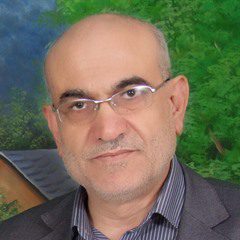As was widely predicted, reformist candidate Hassan Rouhani won the first round of the Iranian presidential election, gaining more than half of the votes cast. This outcome was not surprising given the disarray of the conservative trend, which fielded five candidates; Rouhani was the only reformist candidate. Some forecasts had predicted that he would need a second round of voting to get an overall victory but he won outright in the first.
What must be noted here is that Rouhani’s result does not reflect the popularity of the reformist trend on the Iranian street. If the winner was Mir Hassan Mawlawi, for example, the result would have been much clearer in his favour. Rouhani is not classified fully as a reformist, even though he is seen as being very close. Some media sources have referred to him as a moderate conservative candidate rather than reformist.
It is clear that the public mood in Iran is no longer supportive of the conservatives. Their support does not extend beyond the poorer classes and some fundamentalists who are attracted by the conservatives with their mixed discourse of religiosity and some welfare programmes. Thus it appears that reformists are more accepted, especially among the youth, in the big cities and the middle class.
What really dominate the public mood in Iran today are the standard of living and general freedoms. In both respects much anger has been poured out against the conservatives, who tend to a great extent to restrict public freedoms. Their political adventures have taken the country to the verge of bankruptcy. This is clear in the wake of international sanctions on one hand and the huge costs of foreign intervention on the other. The latest of these is Iran’s involvement in Syria, which continues to drain the already depleted Iranian treasury, with a minimum estimate of $20 billion spent during the past two years.
In the 2009 elections, the reformists judged the mood of the street and raised the slogan, “No Gaza, No Lebanon, we all sacrifice for Iran”. When the 2009 situation is compared with that of today, the impact of the sanctions on the internal situation and the Syrian intervention is much greater. Reformists could have raised the slogan of, “No Syria, No Lebanon, we all sacrifice for Iran”. Of course, Iran has stopped much of its support for Gaza and Hamas because of the latter’s stance towards Syria.
In the context of revealing the general mood in Iran, it is worth recalling a poll conducted by Iranian TV at the end of the last year on how to deal with international sanctions. The public was asked about the preferred response to the sanctions and was given three choices: abandoning uranium enrichment for a gradual lift of sanctions; closing the Strait of Hormuz; or facing the sanctions in order to preserve Iran’s nuclear rights. The surprising result was that 63 per cent supported stopping uranium enrichment, 20 per cent voted for closing the Straits of Hormuz and 18 per cent voted for keeping the uranium enrichment and facing sanctions.
To soften the impact of the poll, the station decided to freeze it after 28 hours, claiming that foreign hackers had influenced the results; an accusatory finger was pointed at the BBC. It was claimed that the real result was 24 per cent for the uranium programme and 38 per cent for the other two choices. The TV station even went on to assert that such results do not, in any way, reflect public opinion, or even the majority of Iran’s revolutionary people.
The question that must be asked after Rawhani’s victory relates to Iran’s foreign policy. This portfolio has always been, and still is, in the hands of the revolution’s leader, Ali Khamanei, but the message from last week’s elections would certainly have got through to him loud and clear. As such, he must reassess his policy, which not only attracts international sanctions but also goes further to entrench a state of vile enmity towards Iran’s Arab and Islamic neighbours; indeed, against the majority of Sunni Muslims.
Rawhani has tried to send some messages to the neighbouring countries and the international community to reassure them that his policies will be different from the hard-line policies of Ahmadinejad. More than any other he also wants these messages to be delivered to the Iranian people, who recognise the problems that Ahmadinejad has brought upon them even though Khamenei has clearly been more inflexible than the former president.
It is difficult to speculate what will happen in the next four years, but we can expect that the consequences of the Syrian dossier will be the most dangerous. What is certainly going to happen is that if Iran does not return to reason and abandon its expansionist delusions; reconcile with its Arab neighbours on the basis of balanced neighbourly relations; and abandon its military nuclear programme, its condition will become more dreadful.
The author is a Jordanian writer. This article is a translation of the Arabic which first appeared in Ad Dustour Newspaper on 15 June, 2013
The views expressed in this article belong to the author and do not necessarily reflect the editorial policy of Middle East Monitor.











